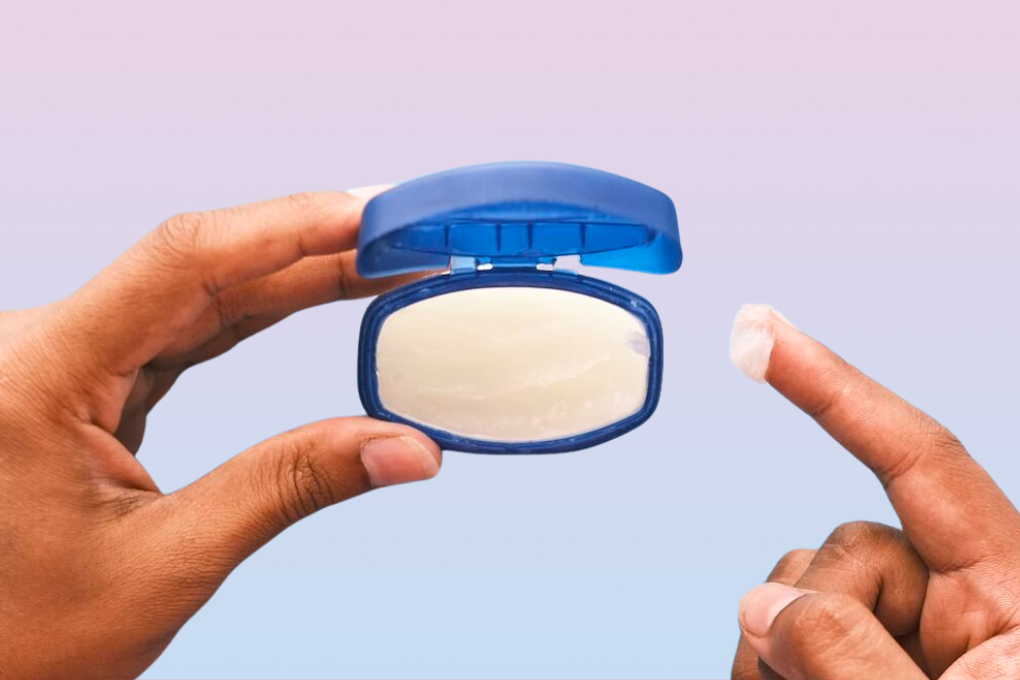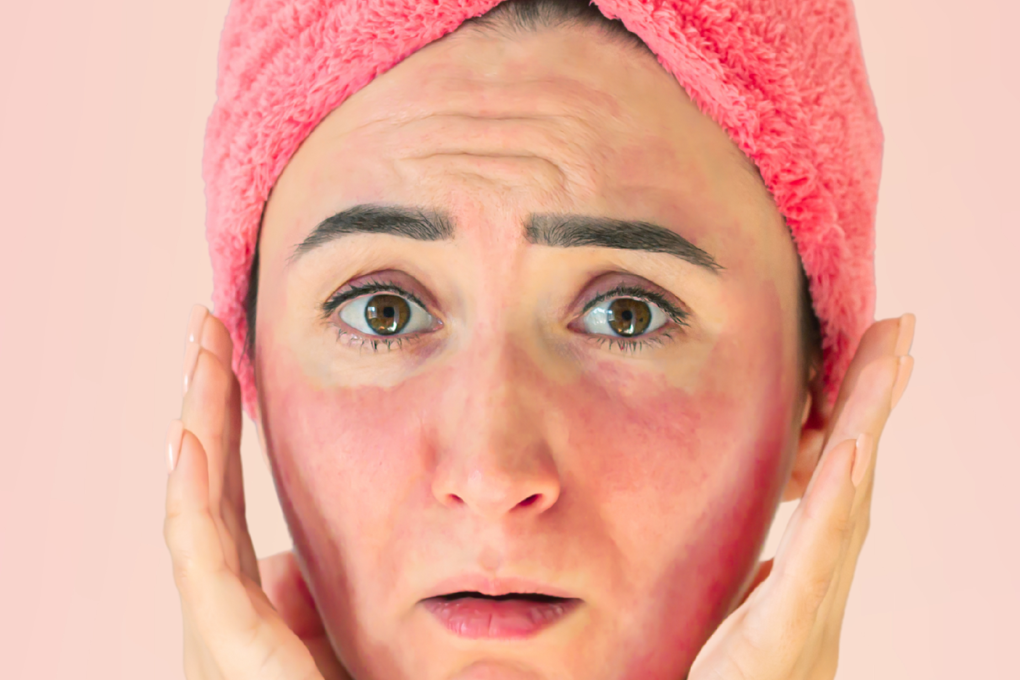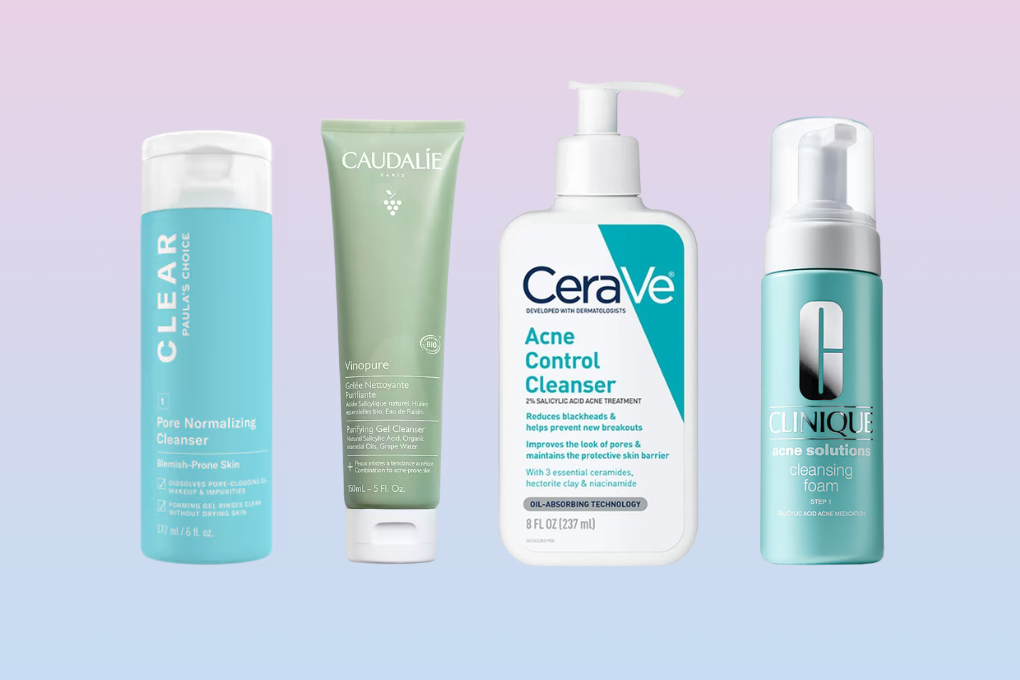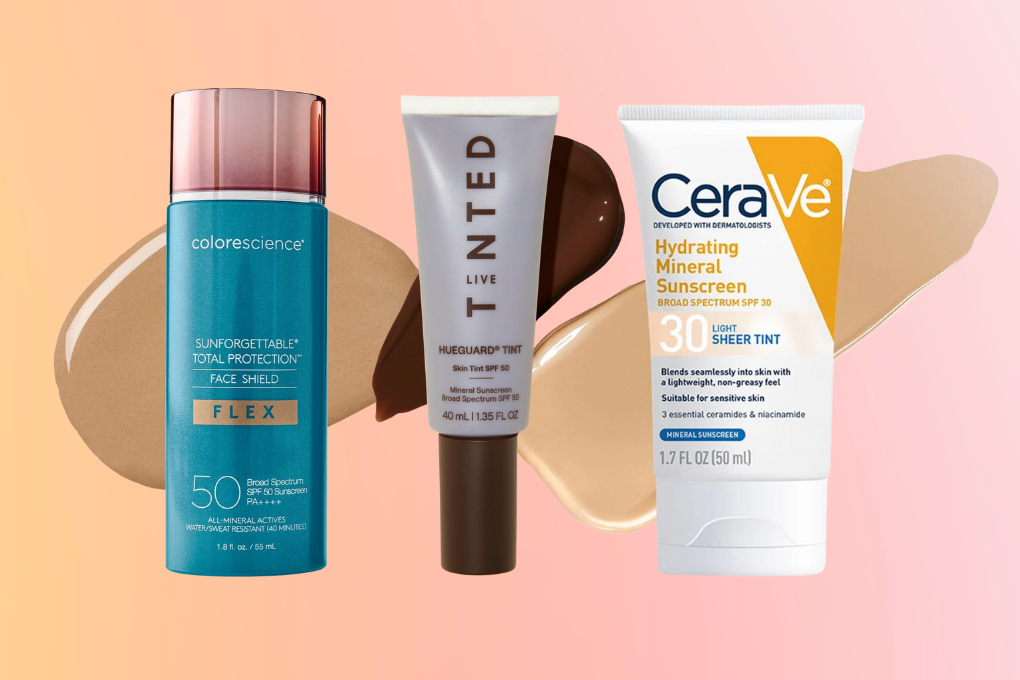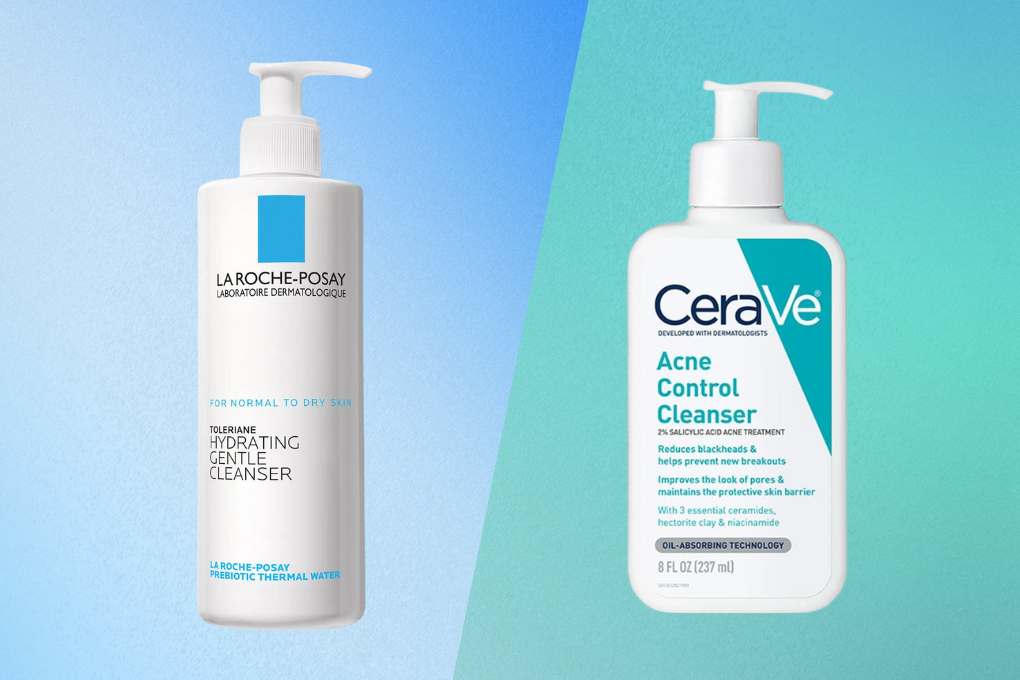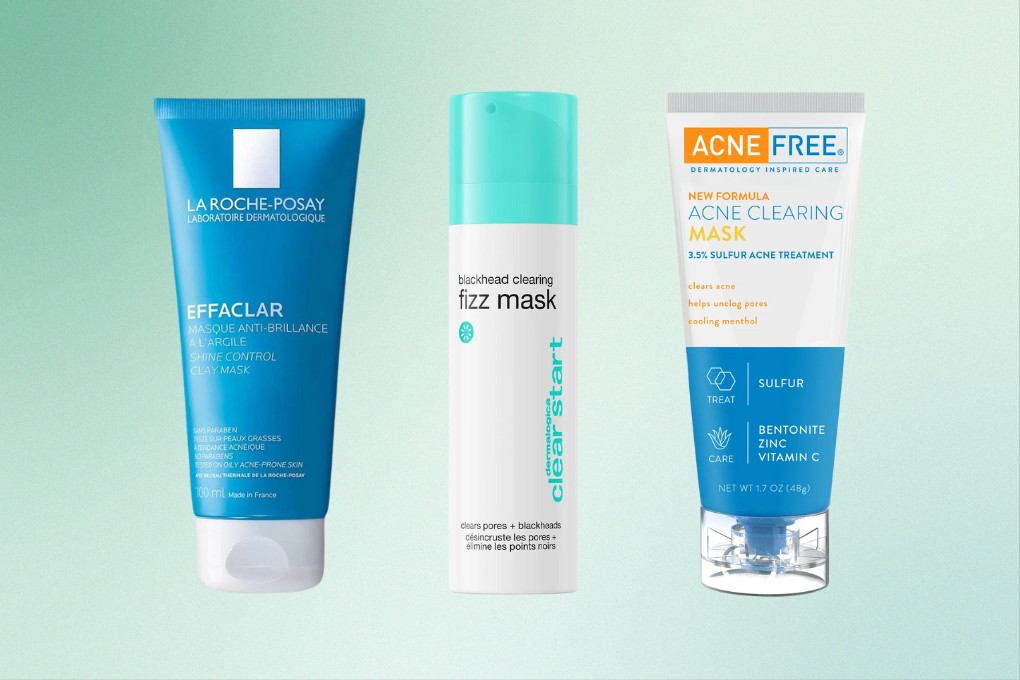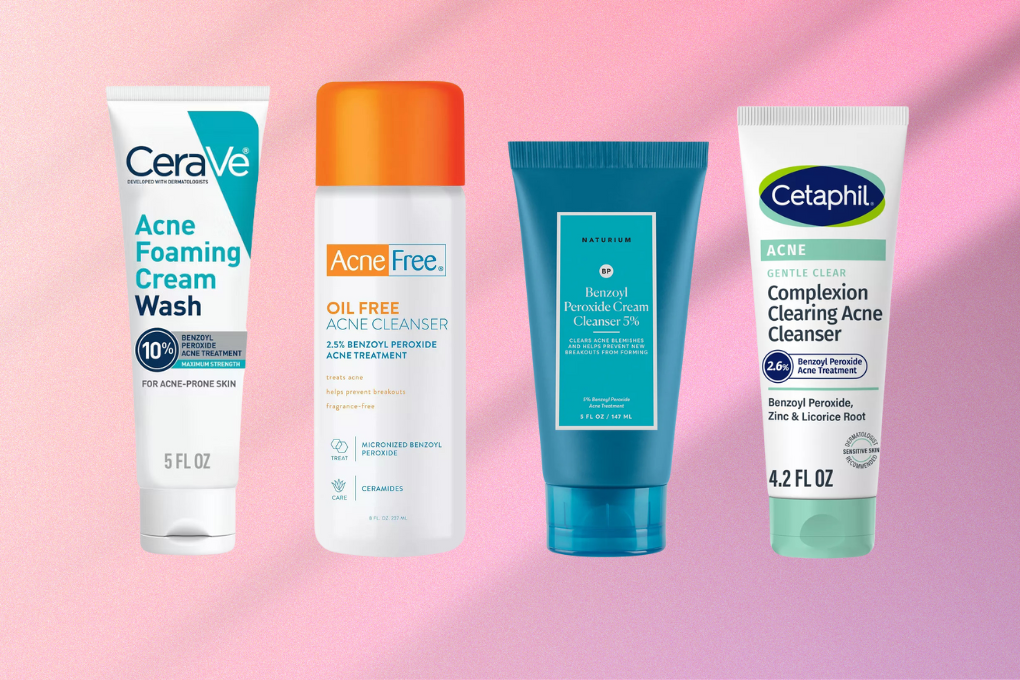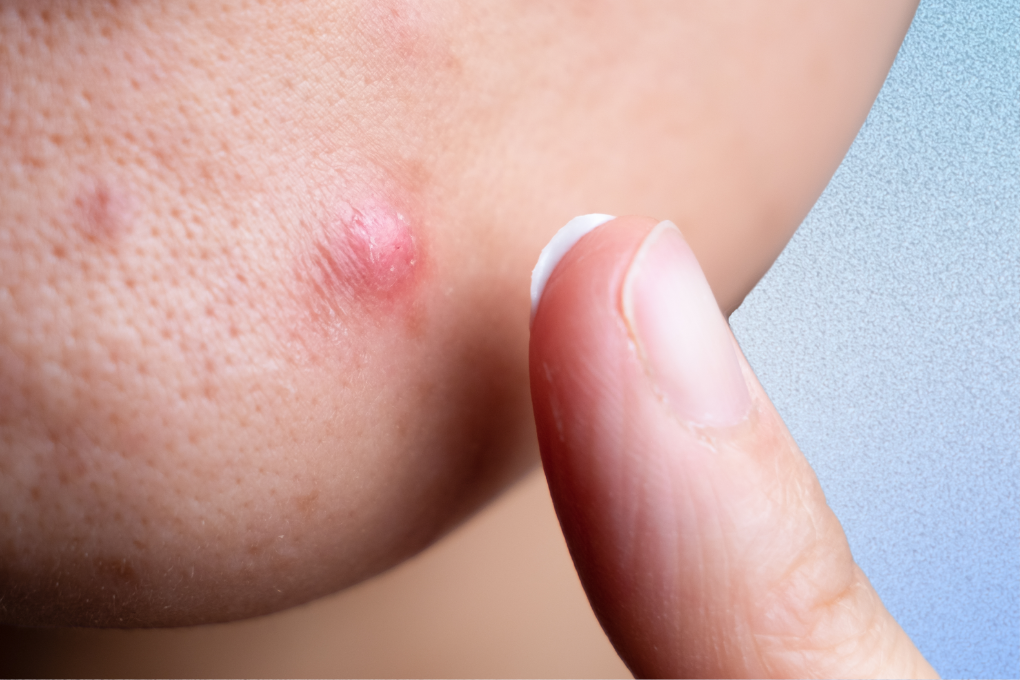Slugging is a skincare trend that involves slathering a layer of occlusive product, usually petroleum jelly (Vaseline), over your skin as the last step in a nighttime skincare routine resulting in a shiny appearance like a slick slug.
The goal of slugging is for the occlusive layer to help to seal in moisture and active ingredients in the previous skincare steps, creating a barrier that prevents water loss from your skin while allowing it to better absorb any beneficial ingredients and protecting the skin from external irritants.
This sounds great, but this wouldn’t be Acne Club if we didn’t ask the question: can slugging cause acne, or is slugging good for acne-prone skin?
Vaseline can prevent 99 percent of water loss from our skin, so it can be very effective for keeping moisture in your skin overnight, and can be especially useful if your skin is dry or dehydrated, or if you have a damaged skin barrier.
However, while we would all love to wake up with soft and nourished skin, a thick occlusive layer is not the best choice for all skin types—especially if you have acne.
A Short History of Slugging
Slugging in its current form originated in South Korea. While it gained in popularity in recent years with skin care enthusiasts around the world thanks to social media, the use of petrolatum-based ointments such as Vaseline to seal in moisture is not a new phenomenon.
In the 1400s, a Native American Senecan tribe used petroleum jelly found in oil pits in Pennsylvania to heal skin. A few centuries later, refined petroleum jelly, also known as petrolatum, was invented in 1870 by Robert Chesebrough, a chemist from New York.
Chesebrough noticed that workers in the oil fields were using a waxy residue from oil rigs to heal their cuts and burns. He eventually refined the substance and created what he called “Wonder Jelly,” or Vaseline, which became a popular ointment for a variety of uses, from healing wounds to moisturizing dry skin. Marilyn Monroe is known to have put a layer of Vaseline on her skin before makeup for her signature luminous glow.
Slugging, or greasing up, with Vaseline has been a beauty tradition in the Black community for decades. Generations have used it on their face, body, and even scalp to moisturize and heal the skin, and it remains popular today.
Does Slugging Cause Acne?
In short, yes. Slugging can cause acne breakouts. Is slugging good for acne if you have acne-prone skin? Almost certainly not.
While you may have heard that Vaseline is non-comedogenic, meaning it does not clog pores because the size of its molecules are too big, slugging can cause acne on your skin if it is already acne-prone. If petroleum jelly is applied to skin that is oily or prone to acne, it can potentially worsen acne breakouts because the thick barrier of petroleum jelly can trap bacteria and sebum in your pores, leading to the formation of pimples. Using a thick barrier over the skin can prevent your skin from “breathing” by blocking your pores and leading to more oil build up.
Overall, slugging can be a helpful technique for those with dry skin that doesn’t break out, but oily and acne prone folks should steer clear, as slugging can cause breakouts, and far from helping your acne, slugging is likely to block your pores and make your acne worse. It can also make active ingredients more irritating if they are trapped under a thick barrier.
Does Vaseline Cause Acne?
While Vaseline does not clog pores because the size of its molecules are too big, applying Vaseline to your face can cause acne if it is already acne-prone. Using Vaseline can potentially worsen acne breakouts because the thick barrier of petroleum jelly can trap bacteria and sebum in your pores, leading to the formation of pimples.
Does Slugging Cause Milia?
Milia, also known as milk spots, are tiny white or yellow bumps that usually show up on your face, particularly around the eyes. If you have a darker skin tone they might even have a bluish appearance. They are sometimes mistaken for whiteheads, but while whiteheads form from pores clogged by oil, milia are due to an excess of keratin under your skin. When dead skin cells do not properly shed, they can get trapped by a new layer of skin and form milia. Although harmless and painless, many of us find them annoying.
For many people, milia around the eyes can be triggered by heavy and occlusive skin care products including petroleum jelly, so avoid slugging around the eyes if you are prone to milia. If you do end up with milia, do not pick at them and they should eventually go away on their own.
Alternatives to Slugging for Acne-Prone Skin
If you have acne-prone skin, it is important to know when a skincare trend or product that might be a holy grail for many is just not for you.
While slugging is an inexpensive, widespread, and seemingly effective skincare treatment for many, it is one of those trends that is probably not the best choice for those of us battling acne, as it can potentially exacerbate breakouts. Fortunately there are many other ways to provide extra moisture to the skin without relying on petroleum jelly, including:
Barrier Repair Products
If you feel that your skin barrier is damaged and any moisture you add isn’t staying long enough to help, you can try a barrier repair product that is safe for acne-prone skin.
Barrier repair creams and serums typically contain ingredients that help to rebuild and strengthen the skin’s barrier, such as ceramides, cholesterol, and fatty acids. These ingredients work together to replenish and reinforce the lipid barrier, which helps to seal in moisture and protect the skin from external stressors.
EltaMD Skin Recovery Lightweight Moisturizer for Damaged Skin Barrier with Amino Acids
Elta MD's Skin Recovery Light Moisturizer is a weightless lotion designed with acne-prone and sensitive skin in mind. It uses the brand's patented AAComplex of amino acids to restore the skin's natural barrier, which makes it one of our favorite moisturizers to use alongside a strong acne treatment. With hyaluronic acid, glycerin, squalane, and coconut extract, this lotion soothes and moisturizes dehydrated skin while calming irritation and redness.
- Lightweight with hydrating ingredients
- AAComplex restores skin barrier
- Great option when using harsh acne treatments
- Expensive
Layering
Also known as “skin flooding,” applying layers of lightweight products like lightweight toners, serums, and moisturizers can help hydrate and soothe the skin without pore-clogging ingredients.
Look for products with humectants, such as glycerin, hyaluronic acid, urea, and aloe vera, which help to attract and retain moisture in your skin. These ingredients work by drawing water molecules from the surrounding environment into the skin’s upper layers, which helps to improve hydration and plumpness. Apply them to damp skin after washing your face to give them plenty of water to work with. Start with the most watery and lightweight product and layer them in order of thickness up to your moisturizer.
Paula's Choice Skin Balancing Pore-Reducing Toner with Ceramides, Chamomile, and 1% Niacinamide
The Pore Reducing Toner from Paula's Choice is a hydrating toner made for oily or combination skin types to balance the skin and minimize pores. It uses antioxidants, plant extracts such as chamomile and burdock, to soothe and defend from environmental stressors. Niacinamide helps even skin tone and reduce the appearance of pores, while ceramides and cholesterol help reinforce the skin's barrier to better retain moisture.
- Hydrates and balances oily skin
- Niacinamide minimizes pores
- Cholesterol and ceramides strengthen skin barrier
- Niacinamide may be irritating for some people
Face Masks
If you feel the need for an occasional hydrating self-care ritual, you can try using a sheet mask with simple humectant ingredients as an effective alternative to slugging. Sheet masks are made of thin sheets soaked in serums or essences that are designed to nourish and hydrate the skin.
As a more customizable and budget-friendly option you can buy pre-cut face sheet masks or use thin cotton pads and soak them in a hydrating fluid or toner you already have.
By keeping it on your face for 10-20 minutes, the sheet helps to retain moisture and prevents the serum or essence from evaporating too quickly, allowing the skin to absorb the active ingredients more effectively, which makes it similar to the benefits of slugging without the risk of acne breakouts. When you’re done, be sure to lock in the extra hydration with a moisturizer.
NEOGEN Real Ferment Micro Essence with 93% Naturally Fermented Ingredients
The Real Ferment Micro Essence from Korean skincare brand Neogen is made of naturally fermented ingredients to hydrate and soothe skin. These fermented ingredients, such as bifida ferment lysate and rice ferment filtrate, are popular in Korean skincare and are known to deeply hydrate and plump the skin. Niacinamide brightens the skin tone, and amino acids help to repair the skin barrier. Birch tree juice, another popular Korean skincare ingredient, provides antioxidant support.
- Natural ferments hydrate and plump the skin
- Amino acids support skin barrier
- Birch tree juice has antioxidant benefits
- Expensive
- Niacinamide may be irritating for some people
White Rabbit Naked Cotton Classic Premium Facial Cotton Pads
You can also use a non-comedogenic moisturizing face mask or a sleeping mask on evenings when you want to pamper your skin with an extra boost of moisture and nutrients. Moisturizing face masks are specially formulated to hydrate and nourish the skin, and can have additional benefits such as anti-aging or brightening effects. Many moisturizing face masks can offer hydration without exacerbating breakouts, making it a more compatible option for acne-prone skin.
Selectively Slug
Just because petroleum jelly might not be recommended for your face, you can still participate in the slugging trend by using it elsewhere on your body.
If your body skin is not acne-prone, you can try putting on a thin layer of Vaseline, Aquaphor, or CeraVe Ointment on your damp skin after you shower to lock in the moisture with an occlusive layer. Slather Vaseline on your feet and wear socks to bed, and/or apply it to your lips as an overnight lip mask and wake up feeling fully hydrated.
Does slugging clog pores and cause acne? If you have acne-prone skin, unfortunately, the answer to this question is almost certainly yes.





